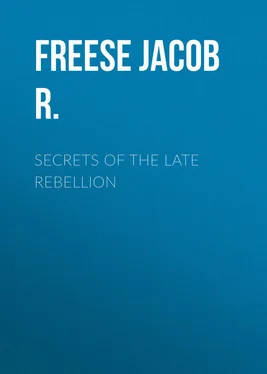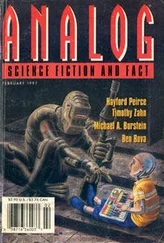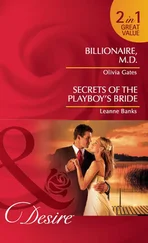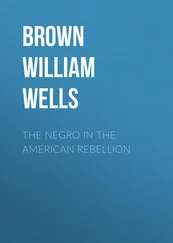Jacob Freese - Secrets of the Late Rebellion
Здесь есть возможность читать онлайн «Jacob Freese - Secrets of the Late Rebellion» — ознакомительный отрывок электронной книги совершенно бесплатно, а после прочтения отрывка купить полную версию. В некоторых случаях можно слушать аудио, скачать через торрент в формате fb2 и присутствует краткое содержание. Жанр: foreign_antique, foreign_prose, на английском языке. Описание произведения, (предисловие) а так же отзывы посетителей доступны на портале библиотеки ЛибКат.
- Название:Secrets of the Late Rebellion
- Автор:
- Жанр:
- Год:неизвестен
- ISBN:нет данных
- Рейтинг книги:3 / 5. Голосов: 1
-
Избранное:Добавить в избранное
- Отзывы:
-
Ваша оценка:
- 60
- 1
- 2
- 3
- 4
- 5
Secrets of the Late Rebellion: краткое содержание, описание и аннотация
Предлагаем к чтению аннотацию, описание, краткое содержание или предисловие (зависит от того, что написал сам автор книги «Secrets of the Late Rebellion»). Если вы не нашли необходимую информацию о книге — напишите в комментариях, мы постараемся отыскать её.
Secrets of the Late Rebellion — читать онлайн ознакомительный отрывок
Ниже представлен текст книги, разбитый по страницам. Система сохранения места последней прочитанной страницы, позволяет с удобством читать онлайн бесплатно книгу «Secrets of the Late Rebellion», без необходимости каждый раз заново искать на чём Вы остановились. Поставьте закладку, и сможете в любой момент перейти на страницу, на которой закончили чтение.
Интервал:
Закладка:
Next morning early, Messrs. Lamb and Waddell were in quest of new suits, which they obtained from a readymade clothing-store, not far from the hotel. Next, they went to Mowrey's banking-house to exchange some of their gold for Confederate notes, which at that time was exchangeable at the rate of eight dollars in Confederate notes for one dollar in gold. Then they returned to the hotel, and soon after were introduced to President Davis's private secretary, N. Burton Harris, Esq. He took them to the Executive Mansion and introduced them to Mr. Davis. With him they had a long conference on business affairs, after which he introduced them to and put them in special care of certain prominent gentlemen at the capital, whose duty and pleasure it would be to give them such additional information as they might need, and accompany them to such other cities of the Confederacy as they might desire to visit. The Colonel called upon the President the same evening, made a full report of all that he had seen and heard and done while at the North, and then left to visit his regiment, which lay near Gordonsville.
Messrs. Lamb and Waddell, after spending a few more days in and about Richmond, seeing what was to be seen and learning what was to be learned, left for Newbern, Wilmington, Charleston, Savannah, Mobile, and other places where Confederate cotton was in store. At all these points they found immense quantities of cotton, some of which they were told had been seven years gathered, and held meanwhile for better prices. At each place they found government agents, and others, who assured them that the cotton could be got through the blockade, if they only had ships on which to load it.
They saw, too, at every place they visited, a determined spirit on the part of the people never to give over the struggle, until their separation was achieved. Of course they did not see, and great care was taken that they should not see, anything like destitution among the people. The tables which they saw were all well spread, though it took the last loaf of bread from the pantry or the last pickle from the jar. It was a part of the masterly diplomacy of President Davis, and of those who surrounded and upheld his hands, never to show a want, or cry peccavi , where a Northern ear could see the one or hear the other. "Not one cent for tribute, but millions for defence," was their cry from first to last, – was their cry, indeed, until, when the egg was finally broken, nothing was found but an empty shell.
Having finished their journey through the States of the Confederacy, occupying between two and three weeks, Messrs Lamb and Waddell returned to Richmond and reported to President Davis that they were entirely satisfied with what they had seen and heard, and that, so soon as they could report the facts to Messrs McLane, Thomas, Howell, and others, there would be no difficulty whatever in his obtaining all the money and all the supplies he might at any time need in exchange for cotton. Colonel Abercrombie was then telegraphed for, and on the day following reported at the Executive Mansion. From the President he received full instructions as to further operations. He then informed Messrs Lamb and Waddell that he was now ready to conduct them back to Washington. Next day they started by rail for China Grove station. Here, at Mr. Randolph's, they exchanged uniform and fashionable suits for their former disguises, and from thence traversed about the same route, rode and walked about the same distances, met with about the same incidents as when on the outward trip, until they finally reached Ben Beveridge's in Washington city. Here they met Major Weightman and informed him of all they had seen and learned. Then on to Baltimore, where they called upon, and reported to, Mr. Thomas and his associates. From this point the Colonel returned to Washington, while Messrs Lamb and Waddell went on to Philadelphia, where they reported to Dr. Howell and his associates; and then to New York, where they reported to Mr. McLane and others. All to whom they reported expressed entire satisfaction as to the result of their trip, and were ready to invest in the enterprise to the extent of their means. Not long after, a general meeting of all the "cotton ring" associates was held at Dr. Howell's, in Philadelphia, when plans were perfected to charter or purchase ships to send to Newbern, North Carolina, to be freighted with needed articles outward and cotton inward. It so happened that three of their vessels were seized by the blockading squadron, not many weeks after, and this for a time threw a cloud over their enterprise; but so soon as the loss was reported to Mr. Davis he gave them enough additional cotton to make up for the loss of the three vessels and their cargoes. From thenceforth they met with but few, if any, losses, though they continued operations, at various points along the coast, until the fall of Fort Fisher, on the 15th of January, 1865. How much the "ring" made in their cotton operations it would be impossible to say; but we have it from an intimate friend of Mr. Gilmore Meredith's, of Baltimore, that his share of the profits amounted to a "million of money," and if his share reached that amount, others, whose investments were far greater, must have reaped still larger amounts.
This cotton ring, made up of the gentlemen whom we have heretofore named as seated around the dinner-tables of Messrs. Thomas and Howell (besides Messrs. Gilmore Meredith, of Baltimore, Samuel Harding, Alphonso Lip-pincott, and Alexander Goldsmith, of New York), must not be confounded with the one, or more, mentioned by General L. C. Baker, chief of the national detective police, in his letter of January 30, 1865, to Hon. E. B. Wash-burne, chairman of committee on commerce, in which the names of Thurlow Weed, Ward Lamon, Leonard I. Sweat, Wm. P. Dole, D. Randolph Martin, B. F. Camp, Prescott Smith, A. H. Lazare, H. A. Risley, T. C. Durant, Samuel Norris, and Simeon Draper, occur as playing principal parts.
These last named gentlemen were nearly all avowed Republicans, and several of them personal and intimate friends of President Lincoln and Secretary Seward. The others were mostly avowed Southern sympathizers (though nominally "Union men"), and some of them had long known, and been on most intimate personal terms with, President Davis, besides having friends and relatives scattered all over the South. The one had no object but to make the almighty dollar. The other had friendship, as well as the almighty dollar, as a basis for action. Which of the two is most to be commended, or most to be condemned, each reader must decide for himself.
And before closing this chapter we again beg to say – as stated in the introductory chapter – that, while vouching for facts, we cannot in every instance vouch for the names and dates given throughout this volume. Our informants in every case meant to give us exact names and exact dates; but the many years elapsing between the events and the relating of them to us, had caused a partial forgetting of names and dates, although the incidents remained as fresh in the minds of the relators as though they had occurred but the day before. In second and all subsequent editions of this work, these errors (if such there be) will stand corrected, for so soon as this work gets before the public, errors, if any there be, will doubtless be observed and corrected by such as were, or are, cognizant of the facts. The author most earnestly invites such corrections, or any others that may be found in the work, as his aim from the first has been to "set down naught in malice," nor to say anything of anybody, or in the relating of any event, but what is strictly true.
CHAPTER IV. ANOTHER CONDUCTOR ON THE NEW LINE. CAUTION SLIDING THE SCENES
IN the preceding chapter, mention is made of the fact that President Davis placed Colonel Newton Killgore on this same service; and in the same paragraph a brief account is given of his accomplishments, and the position he held in the United States army previous to the war. In this chapter we purpose to give a bird's-eye view of his services as conductor on this new line, for running the land blockade.
Читать дальшеИнтервал:
Закладка:
Похожие книги на «Secrets of the Late Rebellion»
Представляем Вашему вниманию похожие книги на «Secrets of the Late Rebellion» списком для выбора. Мы отобрали схожую по названию и смыслу литературу в надежде предоставить читателям больше вариантов отыскать новые, интересные, ещё непрочитанные произведения.
Обсуждение, отзывы о книге «Secrets of the Late Rebellion» и просто собственные мнения читателей. Оставьте ваши комментарии, напишите, что Вы думаете о произведении, его смысле или главных героях. Укажите что конкретно понравилось, а что нет, и почему Вы так считаете.












